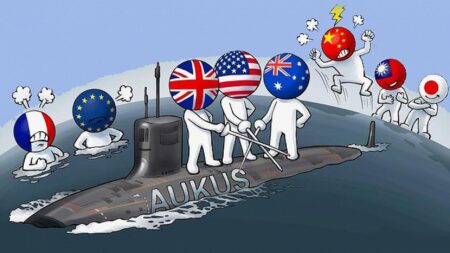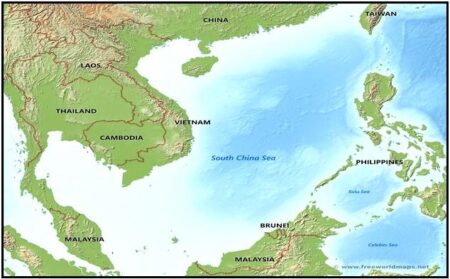Australia’s bold pursuit of state-of-the-art submarines via the AUKUS pact is ramping up pressure on its current defence forces, raising concerns about possible security vulnerabilities during this pivotal period of change
Browsing: strategic alliances
Kashmir’s enduring conflict between India and Pakistan has, perhaps unexpectedly, paved the way for China to enhance its presence in the region. As tensions escalate, Beijing has skillfully seized this opportunity to bolster its economic and strategic influence, weaving itself deeper into the fabric of regional dynamics
In the wake of India’s recent outreach to the Taliban, China has ramped up its diplomatic efforts with both Pakistan and Afghanistan. This gathering highlights the shifting regional dynamics and strategic interests at play, as countries strive to forge stronger alliances in an ever-evolving landscape of geopolitical tensions
In a daring diplomatic maneuver, the USA has unveiled a provocative proposal to transfer Kaliningrad to Germany. This ambitious plan seeks to bolster regional stability and strengthen alliances amid escalating tensions, sparking intrigue and concern in both Berlin and Moscow.
In a bold and striking statement just before his summit with Vladimir Putin, China’s Xi Jinping drew a stark comparison between “US hegemony” and “fascist forces,” illuminating the escalating tensions between Beijing and Washington. This fiery rhetoric serves as a clear signal of the widening geopolitical chasm.
Former President Donald Trump’s recent remarks have thrown a shadow of uncertainty over Australia’s bold $234 billion nuclear submarine initiative. Critics are voicing their worries that his position could disrupt regional security dynamics and defense strategies, sparking anxiety among allies.
Spain is under mounting pressure to ramp up its defense spending, a concern underscored by a recent report from the Real Instituto Elcano. As global threats continue to escalate, experts are urging Madrid to boost its military budget not only to fulfill NATO commitments but also to safeguard national security.
Space Systems Command and U.K. Space Command are leading the charge in international collaboration, achieving a remarkable milestone in defense cooperation. This dynamic partnership is set to elevate joint space capabilities, empowering both nations to effectively tackle emerging threats in the vast expanse of space.
Japan is set to challenge former President Trump’s approach to international alliances as he weighs new trade deals. With negotiations underway, this engagement will serve as a litmus test for his willingness to collaborate with traditional allies.
The UK’s military capabilities solidify its role as a key partner for Europe, enhancing collective defense and security. With ongoing geopolitical challenges, Britain’s commitment to NATO and regional collaborations underscores its strategic importance on the continent.
Egypt has secured funding from France and the European Union to advance its infrastructure development projects. This collaborative investment is aimed at enhancing transport, energy, and water systems, fostering economic growth and regional ties.
Observers are raising concerns over escalating tensions in the South China Sea and Taiwan, as US allies strengthen their ties amid regional uncertainties. Increased military maneuvers and strategic partnerships could heighten risks of confrontation in the area.
Japan, China, and South Korea convened for crucial talks amid a significant geopolitical turning point. The summit aims to address regional security concerns and economic collaboration, reflecting the shifting dynamics in East Asia and the broader global landscape.
As geopolitical tensions rise, the question of whether France and the United Kingdom can effectively replace the U.S. nuclear umbrella emerges. This shift could reshape NATO dynamics and Europe’s defense posture, challenging traditional security alliances.
India’s recent advancements in defense technology are poised to reshape the global landscape, particularly in strategic partnerships and military capabilities. As the nation boosts its defense spending and innovation, the implications for regional and international security dynamics are significant.
In a bid to enhance economic growth, Governor Whitmer has announced strengthened ties with Spain, focusing on increasing foreign investment and job creation in Michigan. This partnership aims to attract Spanish businesses and foster innovation in key industries.
The NDIA emphasizes that while AUKUS reforms are progressing, significant challenges remain. Effective collaboration, resource allocation, and policy alignment among the U.S., UK, and Australia are crucial for the partnership’s long-term success in national defense.
















